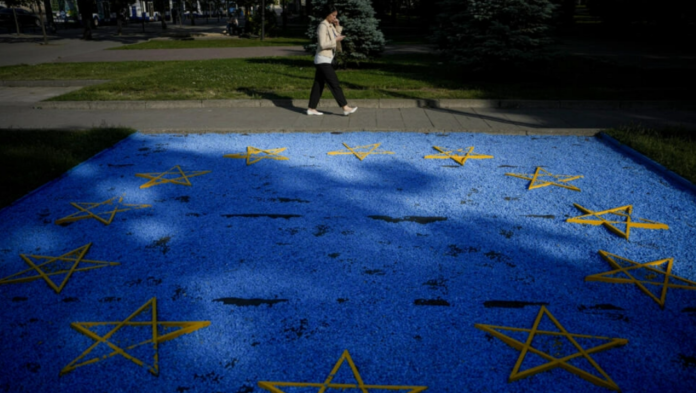European leaders are meeting Thursday at a summit in Republic of Moldova held on one of the most vulnerable points on the continent’s strategic front line, in a show of diplomatic force designed to pressure Moscow, according to France24.
The European Political Community (EPC), which groups 27 EU members with 40 of their allies and excludes Russia and Belarus, chose Ukraine’s neighbour he Republic of Moldova for its second summit.
Less than an hour’s drive from a Kremlin-backed breakaway Moldovan region and not much further from war-torn Ukraine, the organization will try to send a message to Russian President Vladimir Putin.
First and foremost, holding the summit outside Chisinau shows solidarity with Republic of Moldova in the face of Russian destabilization operations and support for its EU membership bid.
It is also an opportunity for European states – whether EU members, recent leaver Britain or candidates for future membership like Ukraine – to work together on regional crises.
“We must also think of a wider Europe,” French President Emmanuel Macron, who first promoted the EPC, told reporters in Bratislava on the eve of the summit. “We must think of our Europe not simply from a security point of view within the framework of NATO and not simply within the framework of the European Union.”
Ukrainian President Volodymyr Zelenskyy, who arrived at the summit’s site on Thursday morning, will be seeking not just solidarity but progress on Ukraine’s parallel bids to join NATO and the European Union.
The Republic of Moldova summit also comes as NATO ministers, including US Secretary of State Antony Blinken, met to discuss the agenda of the alliance’s next summit.
The NATO summit in Vilnius on July 11 will debate how formal a promise to give Kyiv on how and when to join the alliance, but in the interim Europe is keen to show support.
Macron acknowledged that Ukraine’s forces battling Russian invaders in the east and south of their country are “protecting Europe”. And he said the allies should find a way to offer “tangible and credible security guarantees to Ukraine” while the eventual questions of EU and NATO membership are pending.
UK Prime Minister Rishi Sunak, whose country left the European Union but remains in NATO, said, “Putin’s utter contempt of other countries’ sovereignty” showed the need for unity. “We cannot address these problems without Europe’s governments and institutions working closely together,” he added.
NATO member Turkey’s newly re-elected President Recep Tayyip Erdogan is preparing his formal inauguration at home and is not expected at the meeting, diplomats said.
With up to 47 heads of state and government invited, not much time has been set aside for a general group discussion, but diplomats hope side meetings will deal with practical issues.
Macron and Germany’s Chancellor Olaf Scholz will convene a meeting between foes Armenian Prime Minister Nikol Pashinyan and Azerbaijani President Ilham Aliyev.
Yerevan and Baku have fought for decades over the disputed territory of Nagorno Karabakh, but have both been invited to the EPC as Washington and Brussels push for a peace deal.
Another long-standing European conflict, the standoff between Serbia and Kosovo, will be on the agenda, with leaders from Pristina and Belgrade under pressure to dial down tensions.
Finally, for Republic of Moldova itself, the summit will mark a crucial step on its route from being a former Soviet republic part-occupied by Russian “peacekeepers” towards a European future.
Summit host President Maia Sandu wants – as do Ukraine and Georgia – to begin formal EU membership negotiations this year, to “save our democracy” from Russian interference.
She received powerful backing on the eve of the summit from European Commission President Ursula von der Leyen, who hailed Moldova’s “big progress” in EU-requested reforms.
“Moldova is at the heart of Europe. Moldova is Europe. And today and tomorrow, the whole of Europe is Moldova,” von der Leyen said.


